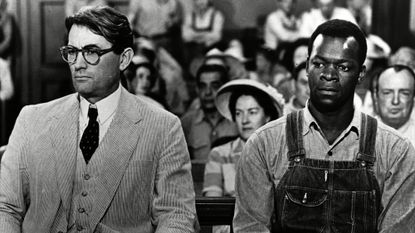Harper Lee’s estate is suing the Broadway adaptation of To Kill A Mockingbird
And for a very unexpected reason...


And for a very unexpected reason...
To Kill A Mockingbird is considered a global classic, with its characters referenced in day-to-day life and the 1960 novel itself topping virtually every list of books to read before you die.
So when it was announced that there was an upcoming Broadway adaptation - set to open in December, the news understandably went viral - with excited fans counting down the days.
The play however has already run into problems as it was announced that the estate of the To Kill A Mockingbird author, Harper Lee, is suing the play’s producer, claiming that the new adaptation strays too far from the original novel.
The play’s producer, Scott Rudin, and script writer, Aaron Sorkin, have come under fire, with Harper Lee’s estate accusing them of adding new characters, distorting the depiction of 1930s small-town Alabama and changing the character of Atticus Finch.
Citing an agreement Harper Lee signed before her death two years ago, the lawsuit - filed by attorney Tonja B. Carter - claims that Rudinplay (Scott Rudin’s production company) is contracted to stay faithful to the spirit of the book and its original characters.
‘[The] adjustment not only gives Atticus a character journey from naïveté to righteousness,’ Carter claimed, ’It [also] ties the 1930s-set Mockingbird to today’s social climate.’
Marie Claire Newsletter
Celebrity news, beauty, fashion advice, and fascinating features, delivered straight to your inbox!

Aaron Sorkin has spoken about the alteration to Atticus Finch’s character previously, explaining to Vulture last year that, ‘As far as Atticus and his virtue goes, this is a different take on Mockingbird than Harper Lee’s or Horton Foote’s.’
He continued: ‘He becomes Atticus Finch by the end of the play, and while he’s going along, he has a kind of running argument with Calpurnia, the housekeeper, which is a much bigger role in the play I just wrote. He is in denial about his neighbours, and his friends and the world around him, that it is as racist as it is … He becomes an apologist for these people.’
Despite accepting that alterations had been made, according to the lawsuit, Rudinplay dismissed the claims that it went against their agreement.
‘Even if the author believes that the play derogates or departs from the spirit of the novel, or alters its characters, the author’s remedy is that the author “will be afforded an opportunity to discuss with [Rudinplay] resolutions of any such concerns”', Rudinplay’s lawyer claimed. ‘The author is therefore not the final arbiter of what “derogates or departs from the spirit of the novel, or alters its characters.”’
‘It is unreasonable to expect that extensive changes can be achieved five weeks before the second workshop. It simply is no longer possible, even if [Mr.Rudin] were in agreement with everything [you say].’
Explaining how Rudinplay believes the claims are without merit, a statement released by the company concluded, ‘While we hope this gets resolved, if it does not, the suit will be vigorously defended.’

Jenny Proudfoot is an award-winning journalist, specialising in lifestyle, culture, entertainment, international development and politics. She has worked at Marie Claire UK for seven years, rising from intern to Features Editor and is now the most published Marie Claire writer of all time. She was made a 30 under 30 award-winner last year and named a rising star in journalism by the Professional Publishers Association.
-
 As Fitness Editors who've spent eight years testing for the perfect sports bra - these 12 get our vote
As Fitness Editors who've spent eight years testing for the perfect sports bra - these 12 get our voteTrust me on this one.
By Ally Head
-
 Prince William was spotted in a local pub with a surprising family member
Prince William was spotted in a local pub with a surprising family memberBy Jenny Proudfoot
-
 A video of Barry Keoghan being a Sabrina Carpenter fan at Coachella is going viral
A video of Barry Keoghan being a Sabrina Carpenter fan at Coachella is going viralAdorable.
By Jadie Troy-Pryde